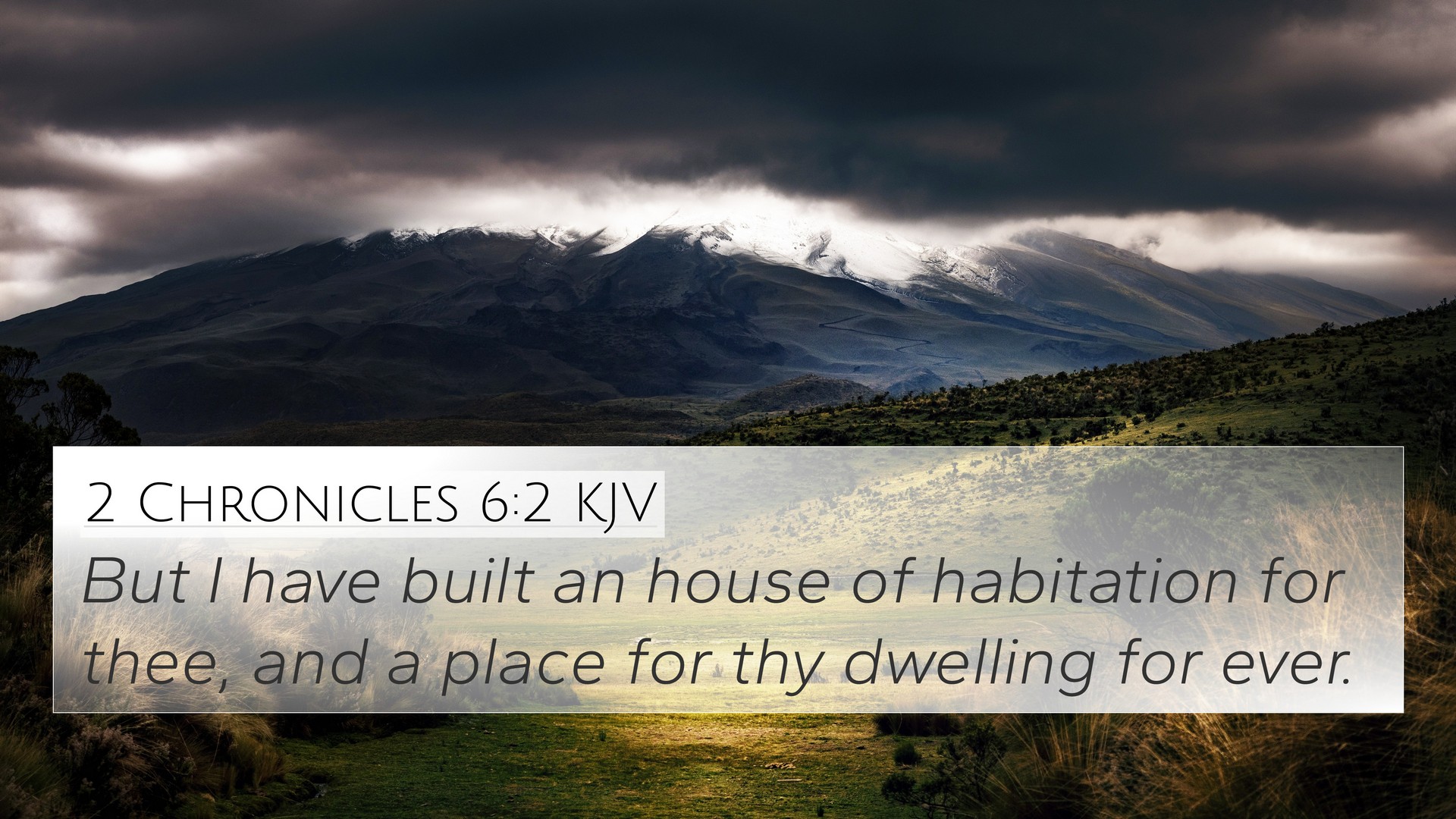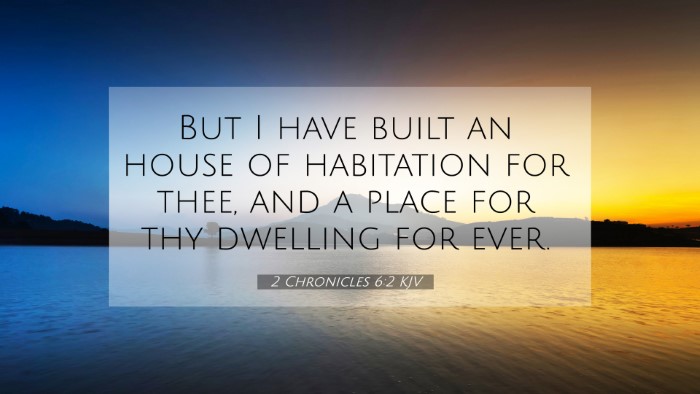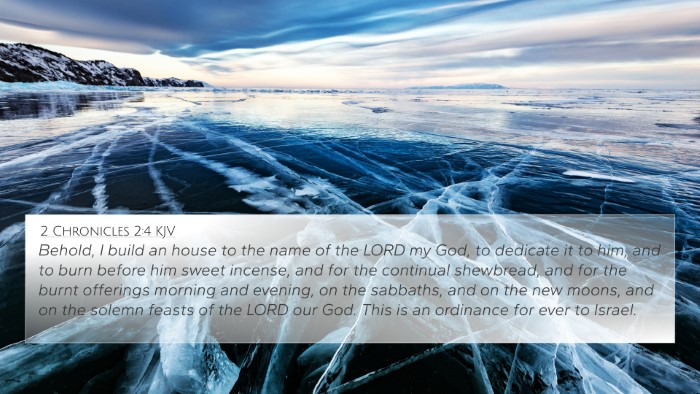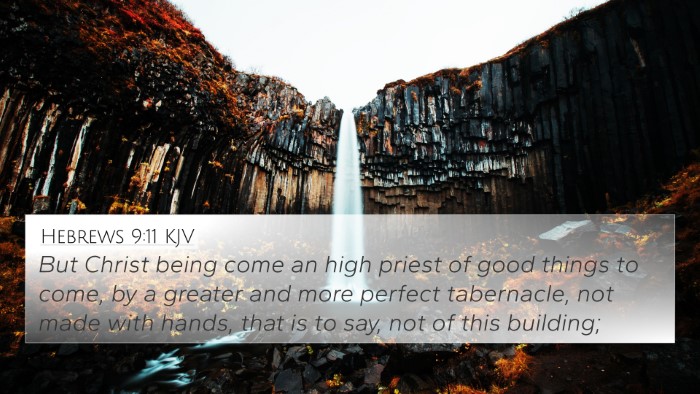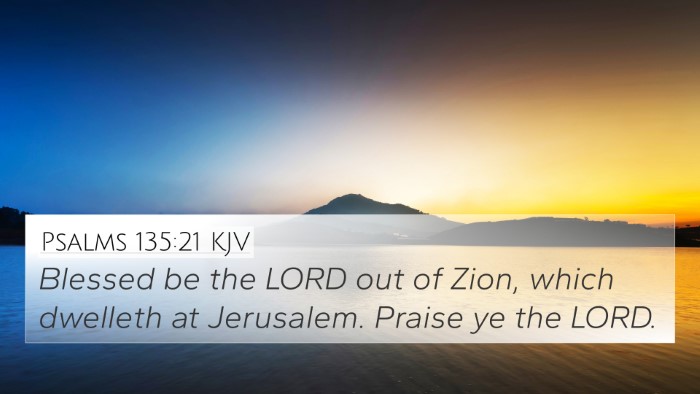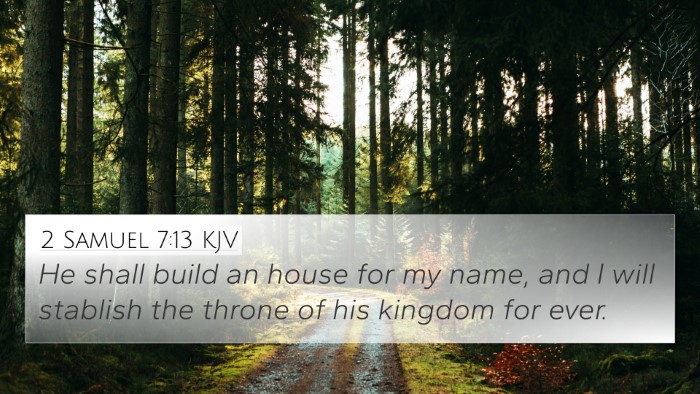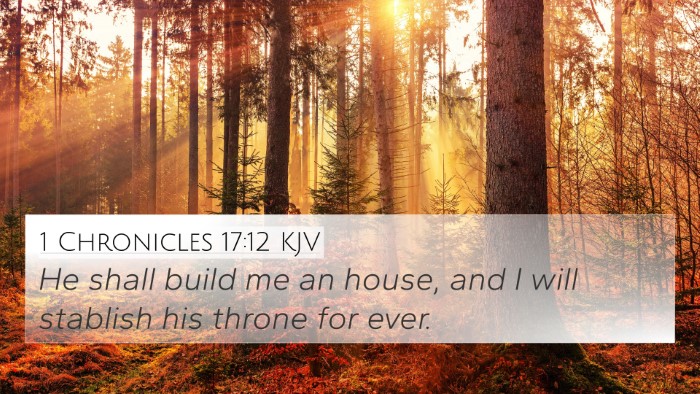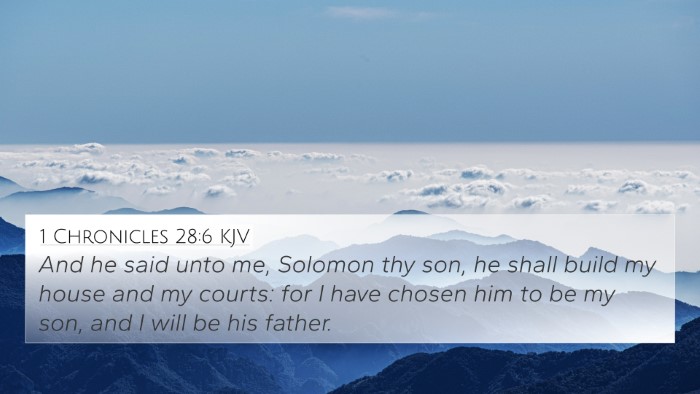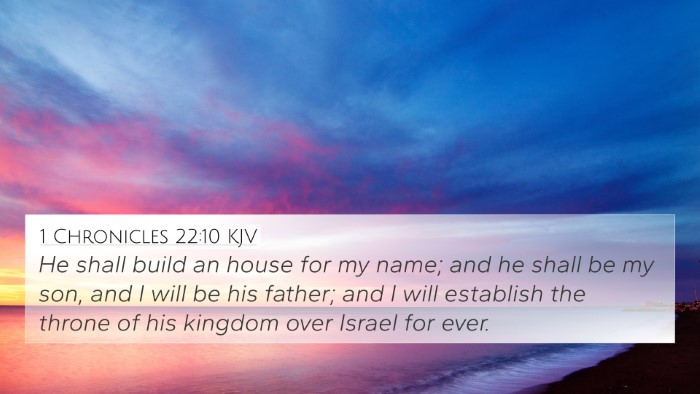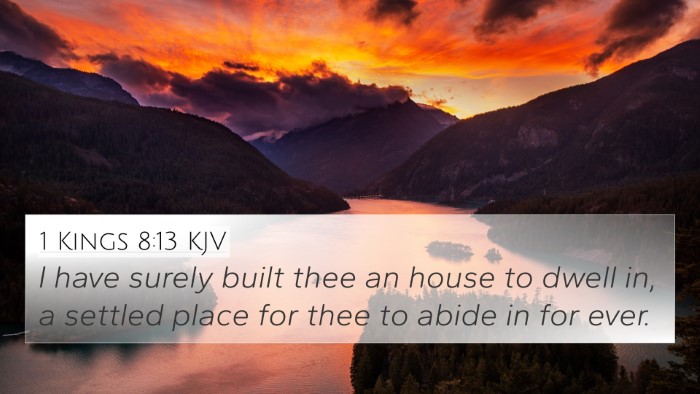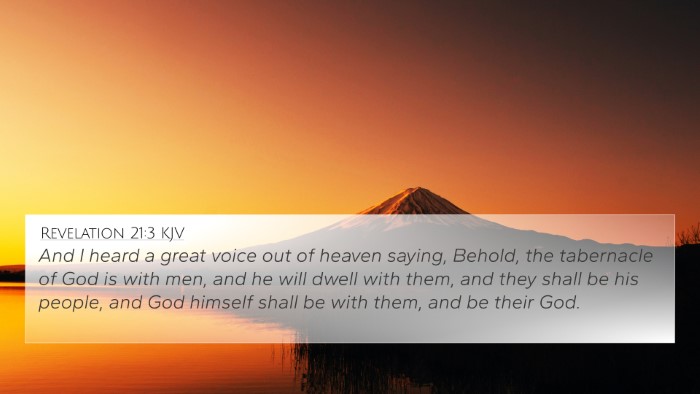Understanding 2 Chronicles 6:2
In 2 Chronicles 6:2, King Solomon proclaims, “But I have built a house of habitation for thee, and a place for thy dwelling forever.” This verse captures the essence of Solomon’s dedication of the Temple in Jerusalem, marking a significant moment in the history of Israel and its relationship with God.
Contextual Background
Solomon’s reign followed that of his father David, and the construction of the Temple was a fulfillment of David's dream to provide a permanent dwelling for the Lord. This passage illustrates not only the physical structure of the Temple but also the spiritual significance it held for the people of Israel.
Commentary Insights
-
Matthew Henry:
Henry emphasizes the solemn commitment of Solomon to serve God and the importance of having a designated place for worship. He highlights that the Temple was intended as a place of divine habitation, indicating God's presence among His people.
-
Albert Barnes:
Barnes points out that the Temple symbolizes the dwelling place of God among humanity, demonstrating God's desire for intimate fellowship with His people. Solomon's declaration reflects a deep theological truth about the nature of worship and divine presence.
-
Adam Clarke:
Clarke elaborates on the historical aspects of the Temple’s construction, noting its significance in the life of the Israelites. He notes that the permanence of the Temple signifies the permanence of God’s covenant with Israel, reinforcing themes of fidelity and commitment.
Thematic Significance
This verse is emblematic of themes such as divine presence, worship, and the covenant relationship between God and His people. It reflects the desire for a sanctuary where the community can gather to seek the Lord, emphasizing the interplay between the divine and the communal.
Bible Verse Cross-References
For a deeper understanding of 2 Chronicles 6:2, consider the following cross-references:
- 1 Kings 6:1: Discusses the period and context of the Temple’s construction.
- Psalms 132:13-14: Highlights God's choice of Zion as His habitation.
- Hebrews 9:1-5: Relates to the significance of the earthly tabernacle and its relation to the Temple.
- 2 Samuel 7:12-13: God's promise to David regarding his lineage and the Temple.
- 1 Chronicles 28:10: Solomon is charged with building the Temple, echoing the commitment in 2 Chronicles 6:2.
- Exodus 25:8: God commands the making of a sanctuary, which foreshadows the Temple.
- Jeremiah 7:12-14: A warning about the misuse of the Temple, showing even God’s dwelling can be taken for granted.
Applying the Themes
Understanding 2 Chronicles 6:2 calls for a reflection on how we view our places of worship. Just as Solomon built a house for God, believers today are encouraged to cultivate their own hearts and communities as places where God’s presence can dwell.
Cross-Referencing Biblical Texts
To explore connections between Bible verses effectively, consider engaging with tools for Bible cross-referencing such as Bible concordance and Bible reference resources. These tools can enhance your understanding of Scripture by revealing links between verses and themes.
When undertaking a cross-reference Bible study, look for thematic connections that illuminate how different scriptures relate to the core message of God’s dwelling among His people. This can lead to deeper insights and a richer understanding of how the Bible communicates its truths.
Conclusion
2 Chronicles 6:2 serves as a powerful reminder of God's desire to dwell with His people. By studying this verse alongside related scriptures, believers can appreciate the continuity of God's covenant and the importance of establishing places of worship in their lives today.
